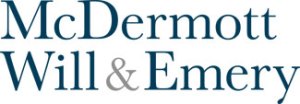NCAA President Mark Emmert has predicted that it would become “impossible” for the NCAA to consider California colleges eligible to participate in national championship competitions should California pass the Fair Pay To Play Act (SB 206) and allow college athletes to maintain their amateur status while accepting pay for marketing their name, image and likeness (as discussed in our recent blog posts on March 4, 2019, and May 23, 2019).
Emmert stated this in a letter to Senator Nancy Skinner, the sponsor of the proposed legislation, and the Chairpersons of two California State Assembly Committees (the Arts Entertainment, Sports, Tourism and Internet Committee and the Higher Education Committee).
Emmert has requested the two committees postpone consideration of the proposed legislation while the NCAA convenes an investigatory working group of school presidents and athletics administrators who will be reviewing the current prohibition on NCAA athletes earning income from the use of their names, images, and likenesses. The working group, led by Big East Commissioner Val Ackerman and Ohio State University Athletic Director Gene Smith, is authorized to propose specific recommendations to potentially reform and modify current NCAA Bylaws.
In his letter, Emmert recognized the California legislature’s efforts in developing the bill, but noted, “when contrasted with current NCAA rules,
the bill threatens to alter materially the principles of intercollegiate athletics and create local differences that would make it impossible to host fair national championships.”
Emmert continued, “… it likely would have a negative impact on the exact students athletes it intends to assist.”
The timing of President Emmert’s request presents a dilemma for the California state legislature as the Ackerman and Smith-led NCAA group is not scheduled to update the NCAA Board of Governors until August and will not issue a final report until late-October, more than a month after the end of the current California legislative session considering SB 206.
SB 206 was just approved by the Committee on Arts without any formal opposition. The bill is now headed to the 12-member Committee on Higher Education, which must express its approval before July 11 and before the 61 Democratic members of the full 80-member California assembly will have an opportunity to consider the bill.
In its current form, the legislation would prohibit a California postsecondary educational institution, athletic association, conference, or any other organization with authority over intercollegiate athletics, from preventing student-athletes from earning compensation in connection with the use of the student-athlete’s name, image, or likeness. This would result in colleges, such as perennial sports powers like UCLA, USC, the University of California, and Stanford from being unable to stop their male and female student-athletes from signing endorsement deals or licensing contracts under the NCAA prohibition, circumventing the power and authority of the NCAA.
Senator Skinner responded to Emmert’s letter, saying, “It’s definitely a threat to colleges.”
She continued, “And this is what I think is so ironic: They are colleges. The NCAA is an association of colleges, and yet they’re threatening California colleges and saying that they would not allow them to participate in championships if my bill passes.”
Skinner reminded the public that if her bill were signed into law, it would not go into effect for another three years. She said the NCAA would have ample time to assess its own rules regarding student-athlete compensation. “Both the colleges and the NCAA have plenty of time to do the right thing,” she said.



![Busted [Bracket]: Facebook Posts From Employee’s Vacation Undermine FMLA Claims](https://i0.wp.com/nationallawforum.com/wp-content/uploads/2015/06/facebook-brickwalltop.jpg?resize=421%2C221&ssl=1)




